How Protestants live in Georgia

Conservatives supporting progress and upholding Western values – the characteristics of Protestants in Georgia.
As for their relationship with the dominant Orthodox church in the country, Protestants say that there is no open conflict between them, but there is tension; intolerance towards Protestants in Georgia is still greater than towards traditional denominations.
With the 500-year anniversary of the Protestant Reformation approaching, JAMnews looked at how representatives of Protestant churches in Georgia are living.
Protestant churches have existed in Georgia for about one and a half centuries. There are many members of multiple denominations living in the country, including Pentecostal Evangelists, Adventists Christians, Evangelical-Baptists, Evangelical-Lutherans, and the Protestant Church of the Holy Trinity. Theologians and Jehovah’s Witnesses, sometimes also considered to be Protestants, make up quite a large religious group in Georgia.
The oldest Protestant churches in Georgia are the Evangelical-Baptist and the Evangelical-Lutheran churches, which were brought to Georgia in the 19th century by the Germans who moved to the Caucasus during the Russian Empire.
During the Soviet era, Protestantism went the same way as the rest of the religious groups in Georgia, dealing with violence, repression and oppression. The Stalin period was particularly marked by the destruction of churches and the persecution of pastors. During the perestroika period, Protestants were able to breathe more or less freely, but only since the beginning of the 1990s have they been able to fully revive their churches.
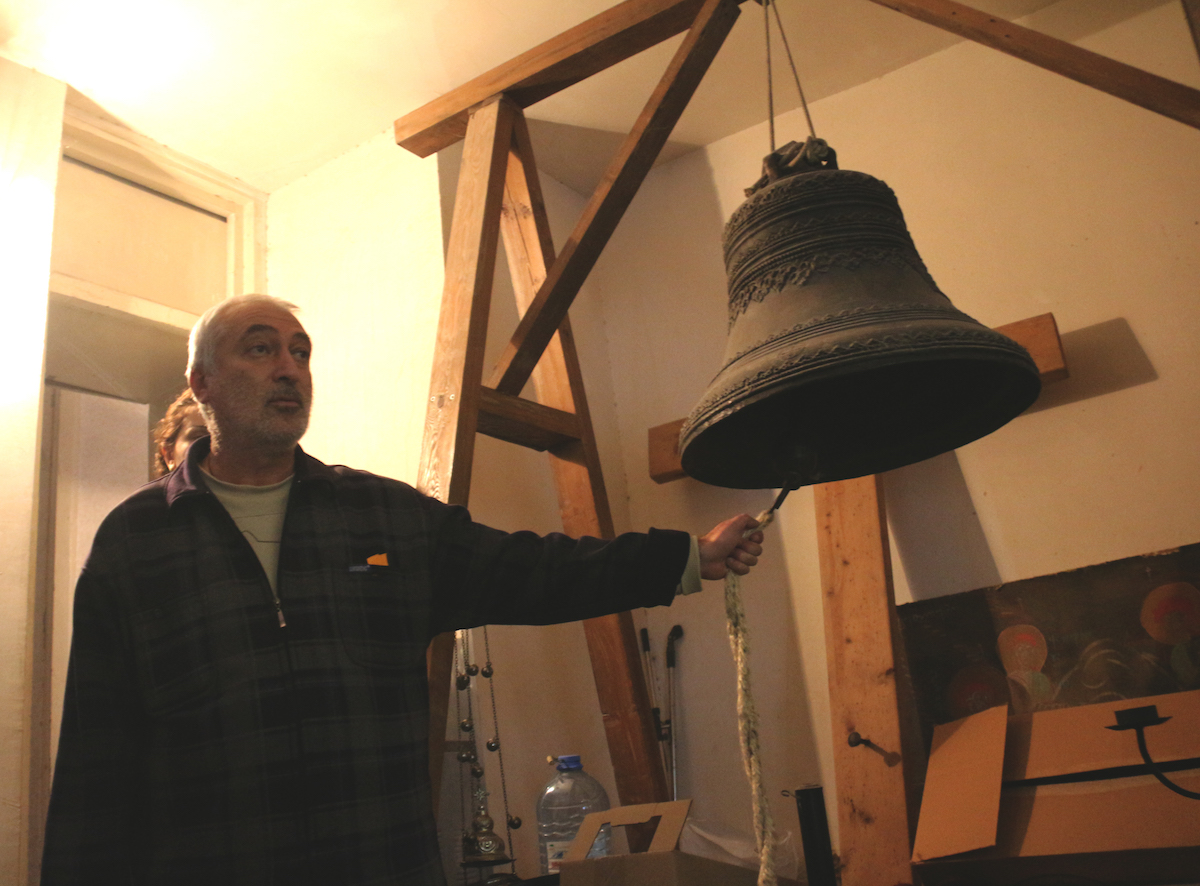
How many Protestants live in Georgia, and where?
There are no precise statistics on the number of Protestants in Georgia. According to the 2014 census, Protestantism was the indicated religion of about 2,500 people, or about 0.1 % of the total population.
This figure does not include Jehovah’s Witnesses, who number more than 12,000 according to official statistics. Therefore, according to these statistics, Protestants are one of the smallest religious groups in Georgia.
Meanwhile, more than 3,000,000 people, approximately 83.4 % of the population, claim membership of the Orthodox Church. Muslims are the second largest group, comprising 10.7 % of the population.
Experts and clergymen are skeptical about official statistics however. According to theologian Beki Mindiashvili, the number of Jehovah’s Witnesses is, in fact, closer to 30,000, and Pentecostal Evangelicals only number up to 10,000 in Georgia.
According to a report from the Tolerance Centre at Georgia’s Public Defender’s office, as of 2008 the Evangelical-Baptist Church of Georgia had only 5,000 baptized followers, with supporters and sympathizers numbering up to 17,000.
This figure included parishioners residing in Abkhazia and South Ossetia. According to the same source, Georgia’s Evangelical-Lutheran Church has just over 1,000 members.
Bishop Malkhaz Songulashvili of the Evangelical-Baptist Church estimates the total number of Protestants in Georgia to be between 30,000 and 40,000.
Geographically, Protestants live in various regions throughout Georgia, both in the east and in the west. The centre of Protestantism is in Tbilisi, with small communities in Rustavi and Gori. One branch, the Protestant Church of the Holy Trinity, is only found in Batumi on the Black Sea coast.
The Evangelical-Lutheran church has one functioning temple in Georgia: The Church of Reconciliation in Tbilisi. The only Evangelical-Baptist church in Tbilisi was opened in 2005, and serves as the main centre for the community.
Title next to the man in the video: Malkhaz Songulashvili – a bishop of the Evangelical-Baptist Church.
Hostility
Despite having more than a century of history, Protestant communities in Georgia still have to overcome multiple problems associated with hostility and a lack of tolerance on the part of members of the dominant religion.
Rusudan Gotsiridze, Bishop of the Evangelical-Baptist church, told JAMnews that there were aggressive attacks by members of the Orthodox Church in the past, and that the opposing and negative attitude is still present in society.
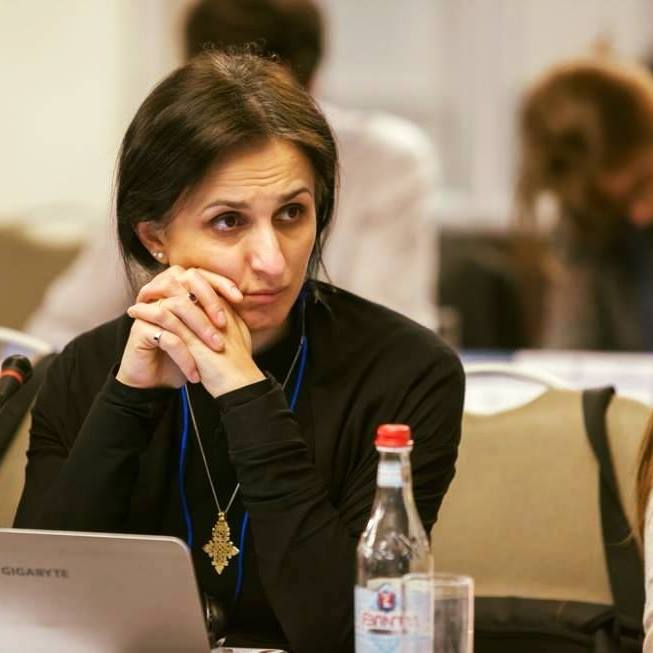
“One can recall the attacks in the recent past that were organized by the former Orthodox priest, Basil Mkalavishvili, who deliberately chose to target members of Protestant churches. For now, the problem of this type of aggression has been resolved, though with difficulty.
“On the part of society however, there is still an aversion to religious minorities, which is one of the major challenges for the country. In schools for example, children from Baptist families are often harassed by both students and teachers,” Gotsiridze said.
Among other problems, she referred to the politicization of religious groups, a lack of laws about religions, and the unhealthy model of budgetary financing (the Orthodox Church receives about $10,000,000 per year from the state, while far less is given to several “traditional” denominations including Protestantism).
According to her, “the Religious Affairs Agency, established in 2014, serves to establish political influence on religious groups” and not to integrate religious minorities.
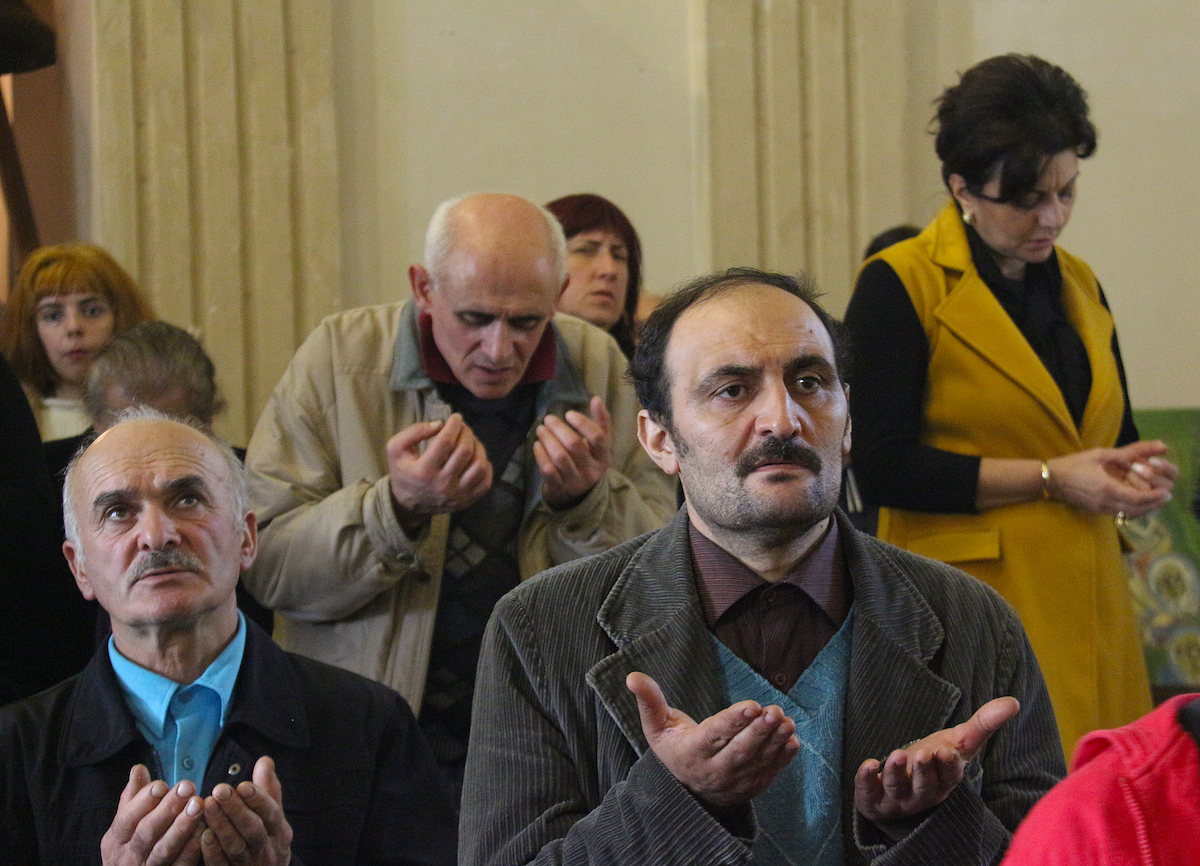
Theological scientist Beka Mindiashvili calls the attitude of the Orthodox Church towards Protestants hostile. According to him, representatives of the patriarchate consider Protestants to be “sinful”, while their aggressive attitude is strengthened because of the Protestants’ clear pro-Western orientation.
Mindiashvili explained that, for the patriarchate, normal relations are only possible with “traditional” faiths (Muslims, Catholics, etc) while with other faiths it takes a tough and unfriendly position.
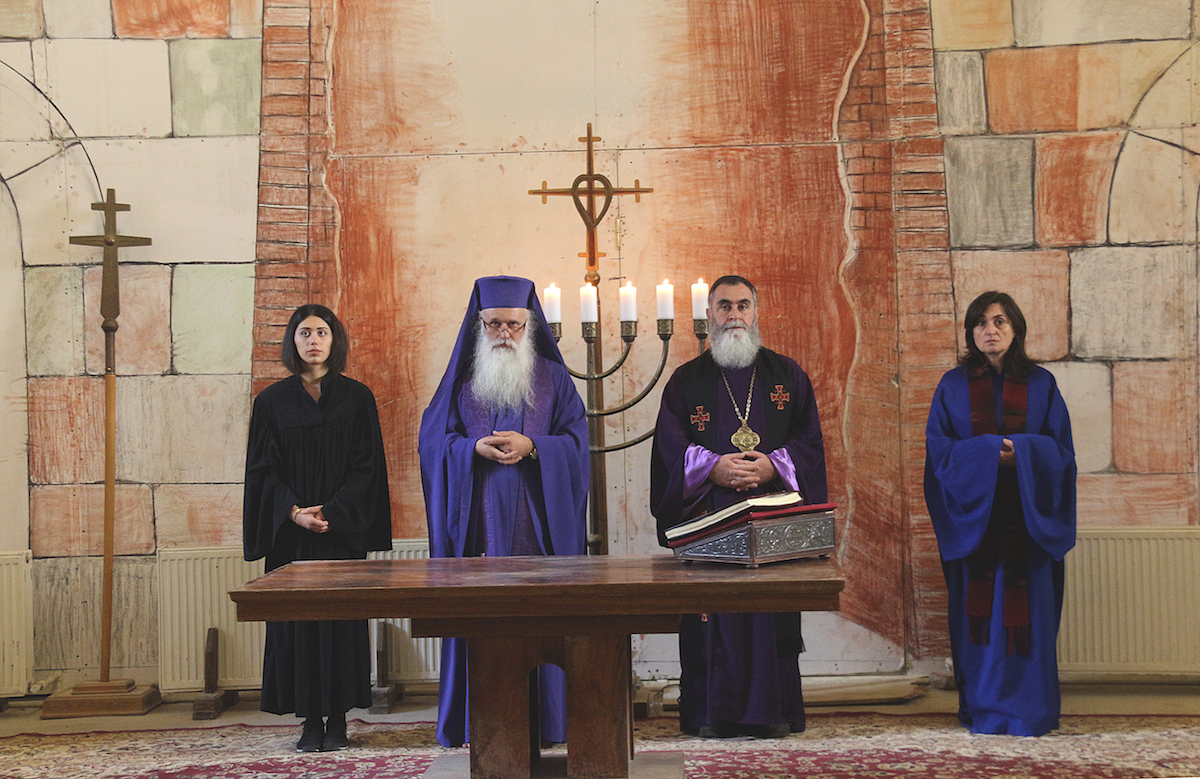
Protestantism vs Orthodoxy
How different are the views of the Orthodox and Protestant churches? For most of the Georgian public, the views of the Georgian Orthodox Church often seem rather conservative and radical. However, according to theologian Marian Gamrekelashvili, to call the Georgian Orthodox Church ultra-conservative isn’t entirely accurate, as the organization is quite large and there are contradictory processes within it.
“The Georgian Orthodox Church is very controversial, both theologically and politically. It is only formally ultraconservative because its position is often very superficial. If viewed from a theological point of view, (the church) often denies development and progress, but in practice it is altogether different,” Gamrekelashvili said.
An example of the Georgian Orthodox Church being characterized by “small developments” as the theologian mentioned, is the Catholicos-Patriarch of Georgia’s open support towards the country’s integration into Europe.
Additionally, Gamrekelashvili believes that ultra-conservative views don’t prevent members of the church from “quickly mastering the latest technological products”.
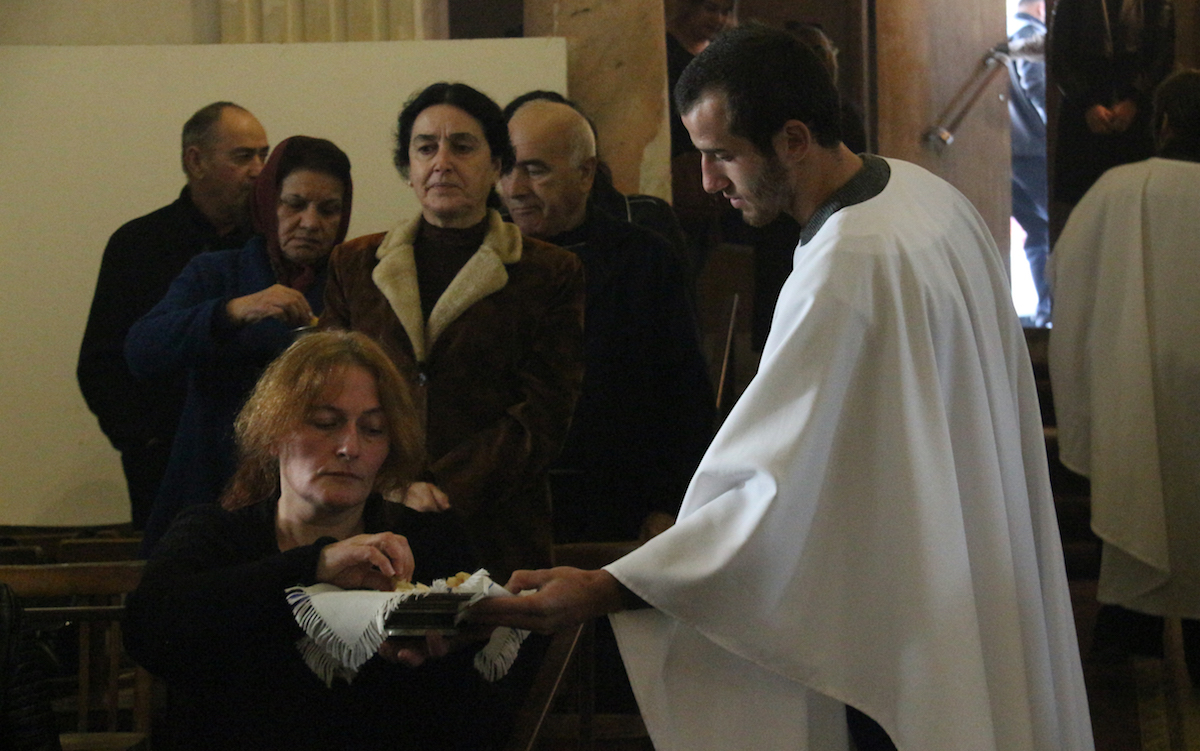
As for the Protestant churches, according to the theologian, they are clearly dominated by expressed and practiced conservative views – with rare exceptions. Stemming from their small size, unlike the Orthodox church, there are no internal contradictions and most of the Protestant churches in Georgia are strictly conservative.
“For their part, Evangelical-Baptist and Evangelical-Lutheran churches are those rare exceptions when (religions) seek progress theologically and politically. This is due to the leaders and hierarchies of these churches,” Gamrekelashvili said.
Beka Mindiashvili also claims that most Protestant churches in Georgia are conservative. According to him however, there is a fundamental difference with the Orthodox Church: Protestants in Georgia clearly support Western values and pro-Western aspirations.
“Unlike the pro-Russian attitudes of the Georgian patriarchy, Protestant churches adhere to Western values. They are often at the forefront of the struggle for minority rights. For example, the Evangelical Baptist Church has always openly defended the rights of women and various other minorities.
“In addition, those Protestant churches adhering to conservative views have nothing to do with xenophobia, homophobia, or any elements of oppression. In this regard, the difference between the churches (Orthodox and Protestant) is enormous,” said Mindiashvili.
He also believes that, compared to the Orthodox Church, Protestant churches are more “non-conformist”.
Malkhaz Songulashvili, a bishop of the Evangelical-Baptist Church, told JAMnews that his church “feels a social responsibility” for all problems in society:
“The church must share all the challenges facing society. Inequality, whether gender based or any other, harassment of minorities, discrimination – all of these topics are important to us.”
Rusudan Gotsiridze, a bishop of the Evangelical-Baptist Church of Georgia, was awarded with the US State Department’s “International Women’s Award for Courage” prize in 2014 for her contribution to the struggle for tolerance, equal opportunities and equality.


















